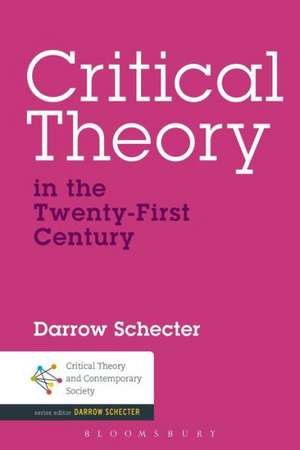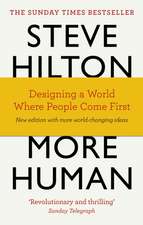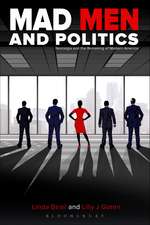Critical Theory in the Twenty-First Century: Critical Theory and Contemporary Society
Autor Darrow Schecteren Limba Engleză Paperback – 23 oct 2013
| Toate formatele și edițiile | Preț | Express |
|---|---|---|
| Paperback (1) | 237.75 lei 6-8 săpt. | |
| Bloomsbury Publishing – 23 oct 2013 | 237.75 lei 6-8 săpt. | |
| Hardback (1) | 831.43 lei 6-8 săpt. | |
| Bloomsbury Publishing – 23 oct 2013 | 831.43 lei 6-8 săpt. |
Din seria Critical Theory and Contemporary Society
-
 Preț: 208.70 lei
Preț: 208.70 lei -
 Preț: 345.05 lei
Preț: 345.05 lei -
 Preț: 155.55 lei
Preț: 155.55 lei -
 Preț: 206.64 lei
Preț: 206.64 lei -
 Preț: 177.90 lei
Preț: 177.90 lei - 23%
 Preț: 512.25 lei
Preț: 512.25 lei - 23%
 Preț: 536.91 lei
Preț: 536.91 lei - 23%
 Preț: 537.00 lei
Preț: 537.00 lei - 22%
 Preț: 256.59 lei
Preț: 256.59 lei - 12%
 Preț: 278.94 lei
Preț: 278.94 lei - 22%
 Preț: 257.21 lei
Preț: 257.21 lei -
 Preț: 278.32 lei
Preț: 278.32 lei - 13%
 Preț: 255.29 lei
Preț: 255.29 lei - 22%
 Preț: 832.65 lei
Preț: 832.65 lei - 31%
 Preț: 771.26 lei
Preț: 771.26 lei - 22%
 Preț: 889.88 lei
Preț: 889.88 lei - 13%
 Preț: 254.75 lei
Preț: 254.75 lei
Preț: 237.75 lei
Nou
Puncte Express: 357
Preț estimativ în valută:
45.49€ • 48.65$ • 37.93£
45.49€ • 48.65$ • 37.93£
Carte tipărită la comandă
Livrare economică 17 aprilie-01 mai
Preluare comenzi: 021 569.72.76
Specificații
ISBN-13: 9781441105462
ISBN-10: 1441105468
Pagini: 224
Dimensiuni: 152 x 229 x 20 mm
Greutate: 0.36 kg
Editura: Bloomsbury Publishing
Colecția Bloomsbury Academic
Seria Critical Theory and Contemporary Society
Locul publicării:New York, United States
ISBN-10: 1441105468
Pagini: 224
Dimensiuni: 152 x 229 x 20 mm
Greutate: 0.36 kg
Editura: Bloomsbury Publishing
Colecția Bloomsbury Academic
Seria Critical Theory and Contemporary Society
Locul publicării:New York, United States
Caracteristici
Provides a reformulation of critical theory and compares it with other bodies of social theory
Notă biografică
Darrow Schecter is Reader in the School of History, Art History and Humanities, University of Sussex, UK. He has written books and articles on social and political thought, including Beyond Hegemony (2005); The History of the Left From Marx to the Present: Theoretical Perspectives (2007), and Critique of Instrumental Reason from Weber to Habermas (2010). He teaches history and political theory at the University of Sussex.
Cuprins
1. Introduction 2. Chapter 1: Dialectics, De-Naturalisation and Social Differentiation (I): From the Public Sphere to the Emergence of Civil Society 3. Chapter 2: Dialectics, De-Naturalisation and Social Differentiation (II): From the Cognitive Content of Aesthetics to Critical Theory 4. Chapter 3: Critical Theory and Mediated Non-Identity 5. Chapter 4: Critical Theory and Political Theory 6. Chapter 5: New Paths Beyond the Marx-Freud Synthesis 7. Conclusion: The Mediations of Society Biblio Index
Recenzii
Schecter offers not so much an update as a return to the spirit of critical theory--not least its stress on the need for an interdisciplinary and politically engaged approach to the study of contemporary society that is alive to the interconnections between culture, politics, law and economics in maintaining and transforming a given social formation. The result is a powerful manifesto for a new school of critical thought, able to address the challenges posed by globalisation, identity politics and the decline in support for conventional democracy.
Any attempt to reinvigorate critical theory must revisit the claim that the critique of knowledge is social critique and vice versa. Critical Theory in the Twenty-First Century does so by exploring the relations between dialectics, mediation, stratification and differentiation today. It is shown that attempts to address issues arising from persistent stratification that do not take functional differentiation into account are likely to offer quantitative solutions to problems that have become qualitative to a significant extent. The book demonstrates that although qualitative reform becomes possible with increased complexity and refined collective learning, it will not arise in the form of automatic systemic adjustment or spontaneous social evolution. New, more flexible mediations will depend on the institutionalisation of de-centred, rather than simply privatised decision-making processes.
Any attempt to reinvigorate critical theory must revisit the claim that the critique of knowledge is social critique and vice versa. Critical Theory in the Twenty-First Century does so by exploring the relations between dialectics, mediation, stratification and differentiation today. It is shown that attempts to address issues arising from persistent stratification that do not take functional differentiation into account are likely to offer quantitative solutions to problems that have become qualitative to a significant extent. The book demonstrates that although qualitative reform becomes possible with increased complexity and refined collective learning, it will not arise in the form of automatic systemic adjustment or spontaneous social evolution. New, more flexible mediations will depend on the institutionalisation of de-centred, rather than simply privatised decision-making processes.






